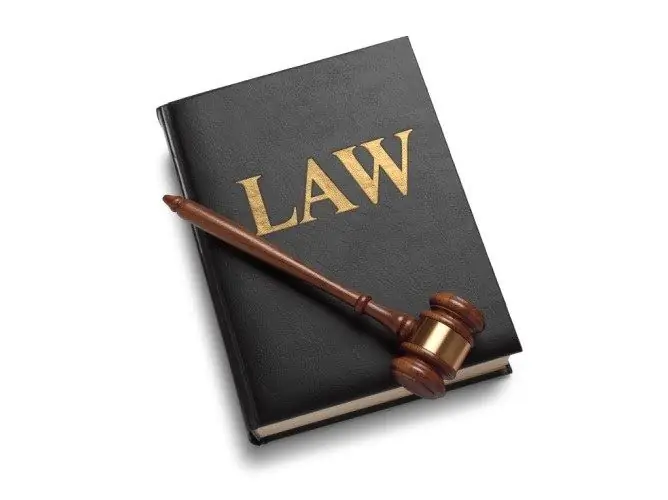- Author Antonio Harrison [email protected].
- Public 2023-12-16 07:44.
- Last modified 2025-01-22 21:44.
Law and regulation have not always existed. At an early stage in the development of human society, relations between people were regulated by oral prohibitions and restrictions. And only with the complication of the social structure and the emergence of the foundations of statehood, it became necessary to consolidate the rules of conduct in the form of written laws.

Why the need for laws arose
In a primitive society, relations between tribesmen were not complex and diverse. Yet they often had to be adjusted to avoid conflicts and misunderstandings. The role of the regulator in this case was played by customs, restrictions and prohibitions on certain actions.
Anyone who violated the rules of the family was subjected to severe measures, including censure, physical punishment or expulsion from the community.
Over time, social relations have changed significantly. The social structure of the community became more complex, and private property appeared. Conflicts between members of society have become frequent. This necessitated the emergence of a special structure for control and enforcement. This is how the state arose.
One of the functions of the state was precisely to regulate the relationship between individual members of society. There was a need to establish in writing the rules of conduct, limiting the freedom of people.
The emergence and development of laws
In the second millennium BC, the first written systems of laws appear. The laws of the Babylonian king Hammurabi are considered to be one of the oldest sources that allowed us to speak about the emergence of the rule of law. Its code clearly defines the rights of individuals and property owners.
In the beginning, the source of laws was the highest officials of the state. The kings themselves determined which norms of behavior needed legislative confirmation, while they themselves ruled and imposed punishment for violation of the law. Subsequently, the control functions were transferred to specially selected judges. Specialists in the field of law appeared who studied and interpreted laws.
During the heyday of Ancient Rome, laws received a new content. Many of the principles of Roman law in a slightly modified form have survived to this day and are reflected in modern legislation. Later, humanity passed through the Middle Ages, when relations between people were most often regulated by the church, the laws and regulations of which were called canons.
With the further development of civil society, the system of legislation also became more complex. After the XII century, on the basis of the provisions of Roman law, civil, common and international law began to develop in many European countries.
Gradually, laws began to regulate relations between individual states.
Over the centuries-old history of the development of law, laws have changed significantly. They began to take into account the peculiarities of the social structure and economic activity to a greater extent. The modern lawyer has to deal with complex legal systems. Knowledge of the laws and the ability to apply them in practice stood out in a special direction, called jurisprudence.






